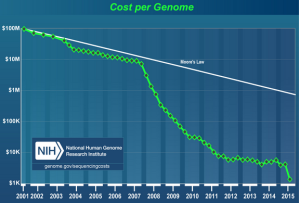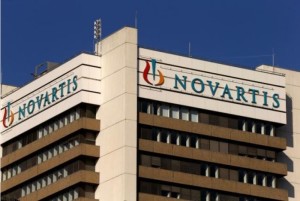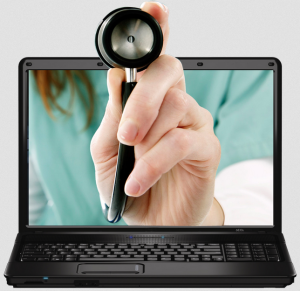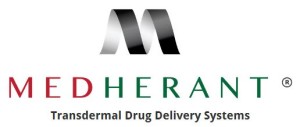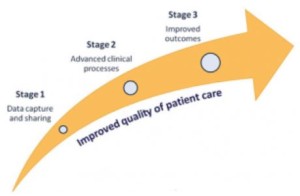- 7 key ingredients in Celgene’s recipe for biopharma dealmaking (medcitynews.com)
Over the past seven years, Celgene has emerged as one of the most active and creative deal-makers in the biopharma industry...The Boston Consulting Group’s Biopharma Partnering Survey and Benchmarking analysis examines BD activity and perceptions across the industry...Celgene scored as the best partner on 78% of the partnering and culture metrics (7/9), as perceived by the sell-side biotechs...here are the “seven habits”, or more aptly just attributes, of Celgene’s...successful external R&D strategy, spanning their...leadership context and...culture:
- Exhibiting more David, less Goliath.
- Starting with a clean sheet of paper.
- Embracing risk, empowerment, and trust.
- Governing with unconventional out-of-the-box leadership.
- Inverting and resizing the talent model.
- Learning at every opportunity.
- Living better through (personal) chemistry.
- 7 largest data breaches of 2015 (healthcareitnews.com)
More than 720 data breaches occurred this year, and the top seven cyberattacks alone have left more than 193 million personal records open to fraud and identity theft...Of the seven, the healthcare industry has the dubious honor of three top spots, with the Anthem breach leading the pack...Our research indicates that cybercriminals are increasingly going after targets in the medical and healthcare verticals, which store valuable patient data that can't be reissued like a credit card...Each of the top seven data breaches compromised more than 5 million records, indicating that attackers are becoming stealthier, are employing more sophisticated techniques and are going after bigger and more lucrative targets...The top 7 breaches:
- Excellus BlueCross BlueShield
- Premera Blue Cross
- Vtech
- Experian/T-Mobile
- OPM
- Ashley Madison
- Anthem
- Sanofi wins first dengue vaccine market approval in Mexico (reuters.com)Mexico Approves Sanofi’s Dengue Vaccine but Pricing Questions Remain (may req sub) (wsj.com)
Sanofi's dengue vaccine is to make its market debut in Mexico, the French drugmaker said…adding that it expects to have filed for market approval in some 20 countries by year-end…the preventive treatment, called Dengvaxia, for all four dengue virus serotypes, but only for patients aged 9 to 45 who live in areas where the disease is endemic…This means the world's first dengue vaccine has no approval yet for use on young children, a population considered to be most at risk, or for use by tourists…Dengue fever is a mosquito-borne disease caused by four virus serotypes as categorized by the World Health Organisation...the disease is seen as a threat to about half of the world's population. Some 400 million people are believed to be infected annually...
- ASHP to Launch Comprehensive Digital Drug Information Resource (ashp.org)
ASHP today announced that it will release a comprehensive suite of its…drug information databases, including AHFS Drug Information®, in early 2016. Recruitment for beta testers will begin during ASHP’s 50th Midyear Clinical Meeting this week in New Orleans…The new product, AHFS® Clinical Drug Information, will provide clinicians with easy access to detailed drug information, including real-time drug and safety updates, direct links to more than 60,000 supporting evidence sources, and in-depth coverage of off-label uses… AHFS Clinical Drug Information will be available via Web browser as well as iOS and Android apps. Individual pricing will begin at $10 per month. The user interface will also integrate into clinical workflow solutions in hospitals and ambulatory care settings.
- Unlocking my genome: Was it worth it? (cnbc.com)
...I discovered, it was also unlikely I'd learn something particularly useful, or "actionable," as geneticists describe it, a dominant mutation that would predispose me to a treatable cancer or heart disease, for example...I learned, because we're still very much in the early days of interpreting our own genetic information...There is a great deal of debate about whether this is worth sequencing...because it hasn't been proven that you can change something and change their outcome…Our understanding of all the implications of our genetics hasn't caught up yet to the power of sequencing technology...I only had one result under "clinically significant findings" in the report...I carry one copy of a mutation called Factor V Leiden...your blood actually clots a little bit faster than people who do not have this mutation...my results included a pharmacogenomics report analyzing how my genes indicate I may react to 12 different drugs, from blood thinners like warfarin and Plavix to the cholesterol-lowering medication Zocor...Many believe this will be among the nearest-term applications of genome sequencing in medicine, using our genetic signatures to improve how we match the right drugs to the right patients...within eight to 10 years, it will be routine for healthy people to have their genome sequenced, and for that information to be a regular part of every medical encounter. Between now and then, costs are expected to continue to come down, reimbursement by insurers is expected to gain more clarity, and more proof is expected about how useful personal genome sequencing can be…For most of us, genes aren't our destiny. They're a blueprint for how we start out, and then life plays a major role.
- 300 million child-friendly antimalarial treatments supplied without profit by Novartis (malaria.novartis.com)
Novartis announced today that it has reached a delivery milestone of 300 million pediatric antimalarial treatments supplied without profit since 2009, helping to reduce the disease burden for children in more than 30 malaria-endemic countries. Coartem® Dispersible is the first artemisinin-combination therapy developed by Novartis in collaboration with Medicines for Malaria Venture specifically to meet the needs of children. Never before have so many pediatric treatments been distributed in such a short timeframe to children suffering from malaria…"This milestone underscores our long-standing commitment to the fight against malaria and to the children who are most at risk from the disease…"We are proud of the part we have played in helping to reduce childhood deaths from malaria. And we continue to provide medicine at no profit to people who need it, contributing to the goal of a world free from the disease."
- China superbug has already gone global, Danish researcher says (fiercepharmaasia.com)
Never mind that report in a scientific journal last month that a new superbug resistant to all antibiotics might go global. It already has, according to a scientific magazine…Danish researcher Frank Aarestrup said he has found the mcr-1 gene in one person in Denmark and in 5 samples from poultry meat imported from Germany more than two years ago. He said the gene is the same as the one found in China…The finding that bacteria with that gene were resistant to the last-standing effective antibiotic, colistin, prompted fears of apocalyptic germs spreading around the world. The discovery at Southern Agricultural University in China was believed to be the first case of mrc-1 (mcr-1) found in humans…If the gene's presence leads to a global pandemic, infections that normally would be treated with antibiotics would become incurable unless new types of antibiotics make their way onto the market in time.
- Make Doctor’s Licenses Like Driver’s Licenses? Medical Groups Say No (realclearhealth.com)
A doctor licensed in one state who wants to practice in another still needs a license from the other state. That’s a costly and time-consuming process, especially in an era when many health plans and their employees operate across state lines and the use of telemedicine, in which patients and their providers interact from a distance, is growing...But the state licensing situation for doctors...is starting to change...Doctors...are creating their own multistate compact...it will provide an expedited application process to get licenses in other states...The main obstacle to portability for all the professions is that they are regulated by the states, each of which is free to demand its own qualifications — and collect its own fees — for licensing. To achieve portability, states either have to standardize their licensing requirements or agree to live with the differences, so long as there are some baseline qualifications accepted by all...doctors have created a compact that the Federation of State Medical Boards says will offer an expedited and cheaper process for getting a license to practice in member states. So far, 11 states have joined the compact, with nearly an equal number expected to join next year. Telemedicine advocates and doctors who use telemedicine say the doctors’ portability model, which still requires full licensure in every state, will impede the spread of telemedicine, particularly in rural areas that have a shortage of doctors.
- Ibuprofen gels not a patch on new delivery tech say UK developers (in-pharmatechnologist.com)
UK researchers have developed an ibuprofen patch they claim offers better dosage control than gel formulations of the pain drug…The patch – which was developed by researchers at the University of Warwick and spinout company Medherant – consists of a transparent layer that is stuck to the skin with an adhesive polymer into which…in this case ibuprofen - is incorporated… the approach enables precise dosage control because the patches have “a defined size with a set amount of drug.”…the technology has wider application…“We know that a lot of other APIs can be incorporated in our patches”…Medherant is interested in partnering with the pharmaceutical industry.
- 9 organizations urge Congress to oppose delay of Stage 3 (healthcareitnews.com)
Health IT Now, along with eight other organizations…are calling on Congress to stay the course on Stage 3 of the Meaningful Use EHR Incentive Program…Health IT Now describes itself as a broad-based coalition of patient groups, provider organizations, employers and payers…The coalition, along with eight other organizations made their pleas in a…letter…"We write to urge you to oppose any legislative changes to the meaningful use program, including delays in the timing of Stage 3, that do not also include reforms to improve the interoperable use of health information technology,"…"Delay without reform would rob taxpayers and patients of cost savings while doing absolutely nothing to make the program work well for overburdened doctors and hospitals."…The American Medical Association and 111 other national and state medical societies called for delay of Stage 3 in an earlier letter to leadership...




